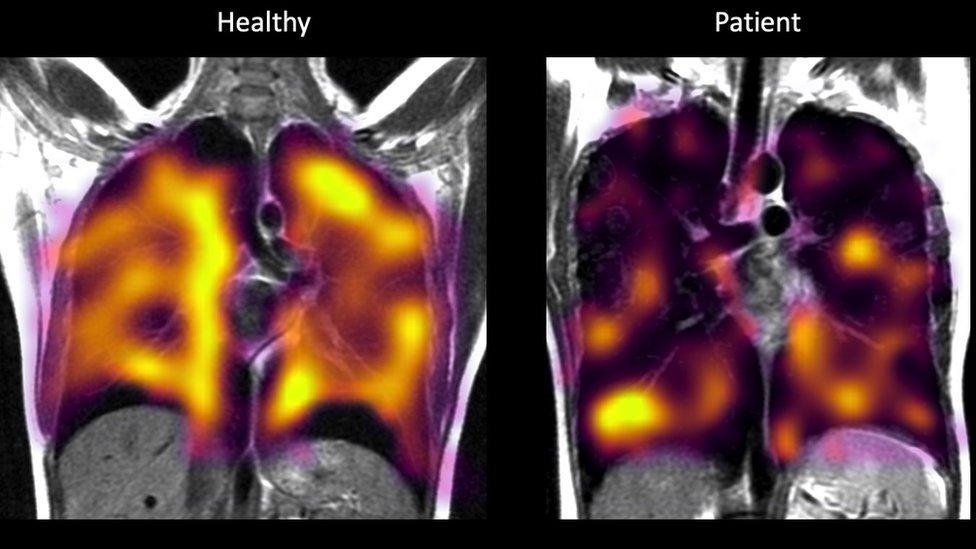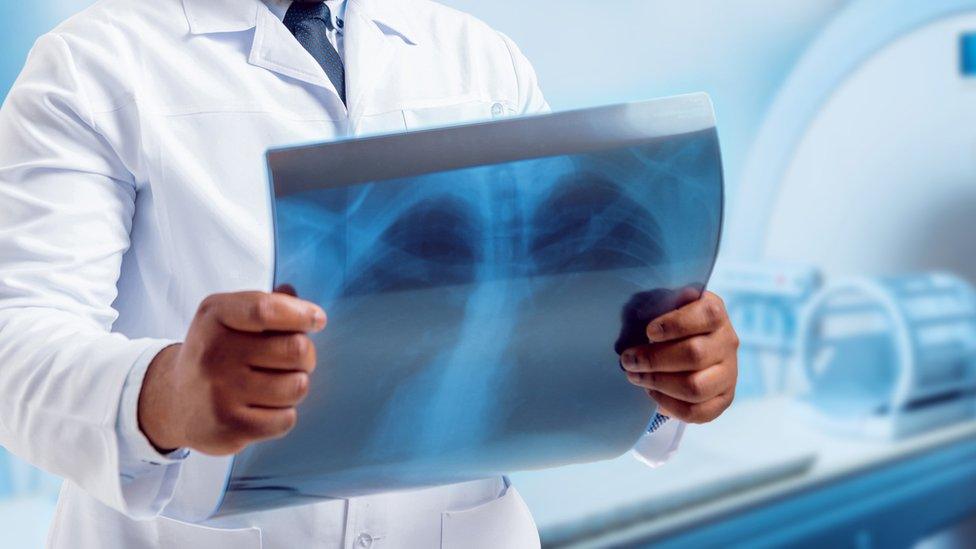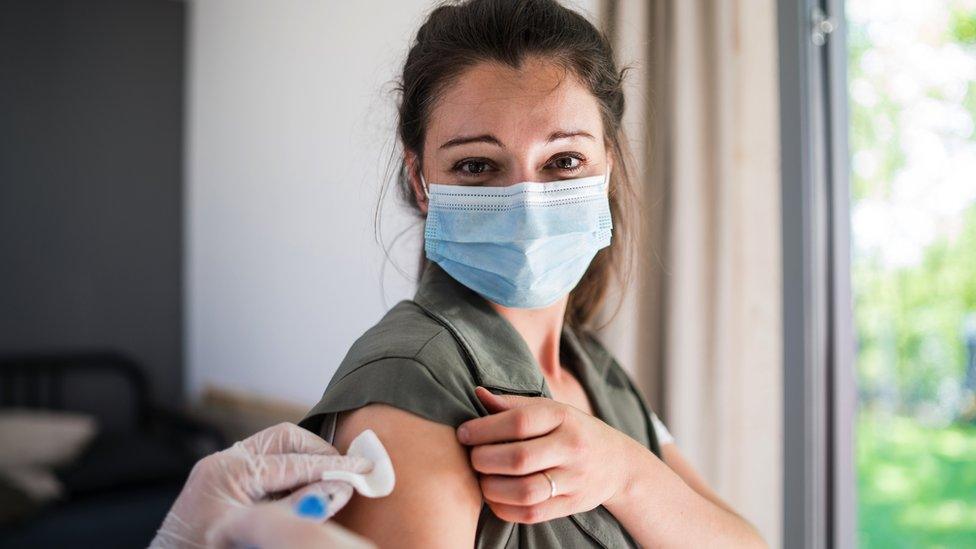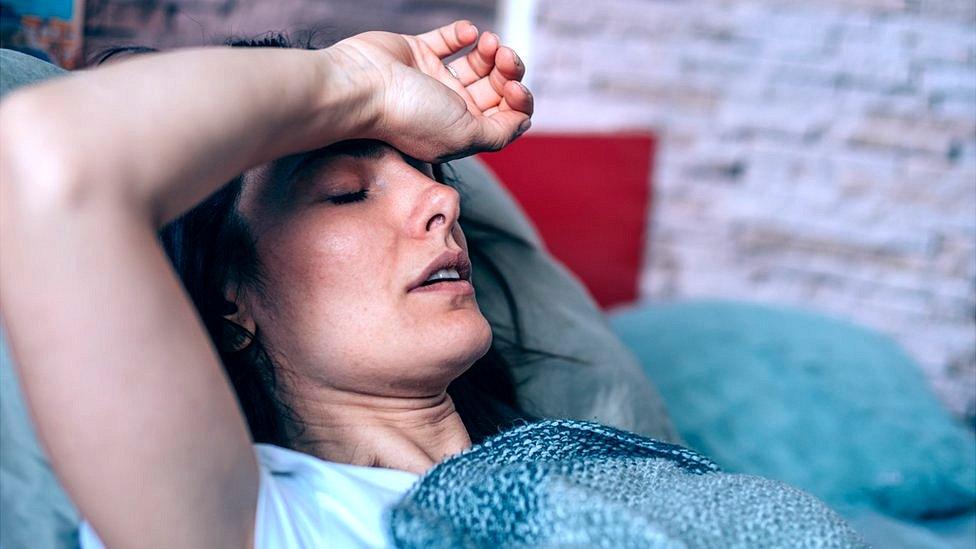Long Covid: Hidden lung damage spotted on scans
- Published

The larger areas of darkness on patients' Xenon scans could represent lung abnormalities
Some people with long Covid may have hidden damage to their lungs, a small pilot study, external in the UK suggests.
Scientists used a novel xenon gas scan method to pick up lung abnormalities not identified by routine scans.
They focused on 11 people who had not required hospital care when they first caught Covid but experienced long-lasting breathlessness after their initial infection.
A larger, more detailed study is under way to confirm the results.
The work builds on an earlier study that looked at people who had been admitted to hospital with Covid.
Researchers say the findings shed some light on why breathlessness is so common in long Covid - though the reasons for feeling short of breath are often many and complex.
Long Covid refers to a host of symptoms that continue for many weeks after a coronavirus infection and cannot be explained by another cause.
'The oxygen journey'
The team, from Oxford, Sheffield, Cardiff and Manchester compared xenon gas scans and other lung-function tests in three groups of people.
This included people with long Covid and breathlessness who had not been admitted to hospital when infected, 12 people who had been admitted to hospital with Covid but did not have long Covid, and 13 healthy people as "controls".
Using the novel approach, developed by the University of Sheffield, all participants inhaled xenon gas during a magnetic resonance imaging (MRI) scan.
The gas behaves in a very similar way to oxygen but can be traced visually during scans, so scientists were able to "see" how well it moved from the lungs into the blood stream - a crucial step in transporting oxygen around the body.
Researchers found for the majority of people with long Covid, gas transfer was less effective than in healthy controls.
People who had been admitted to hospital for Covid had similar abnormalities.
Lead researcher and lung specialist Dr Emily Fraser said it was frustrating having people coming into clinic and not being able to explain to them exactly why it was that they were breathless. Often X-rays and CT scans show no abnormalities.
"This is important research and I really do hope this will shed more light on that."
But she added: "It is important people know that rehabilitation strategies and breathing retraining can be really helpful.
"When we see people in clinic who are breathless we can make progress."
The study's co-chief investigator, Prof Fergus Gleeson, said: "There are now important questions to answer, such as, how many patients with long Covid will have abnormal scans, the significance of the abnormality we've detected, the cause of the abnormality, and its longer-term consequences.
"Once we understand the mechanisms driving these symptoms, we will be better placed to develop more effective treatments."
The paper is a pre-print and has not yet been through the formal process of peer review.
- Published1 December 2020

- Published2 September 2021

- Published10 March 2022
